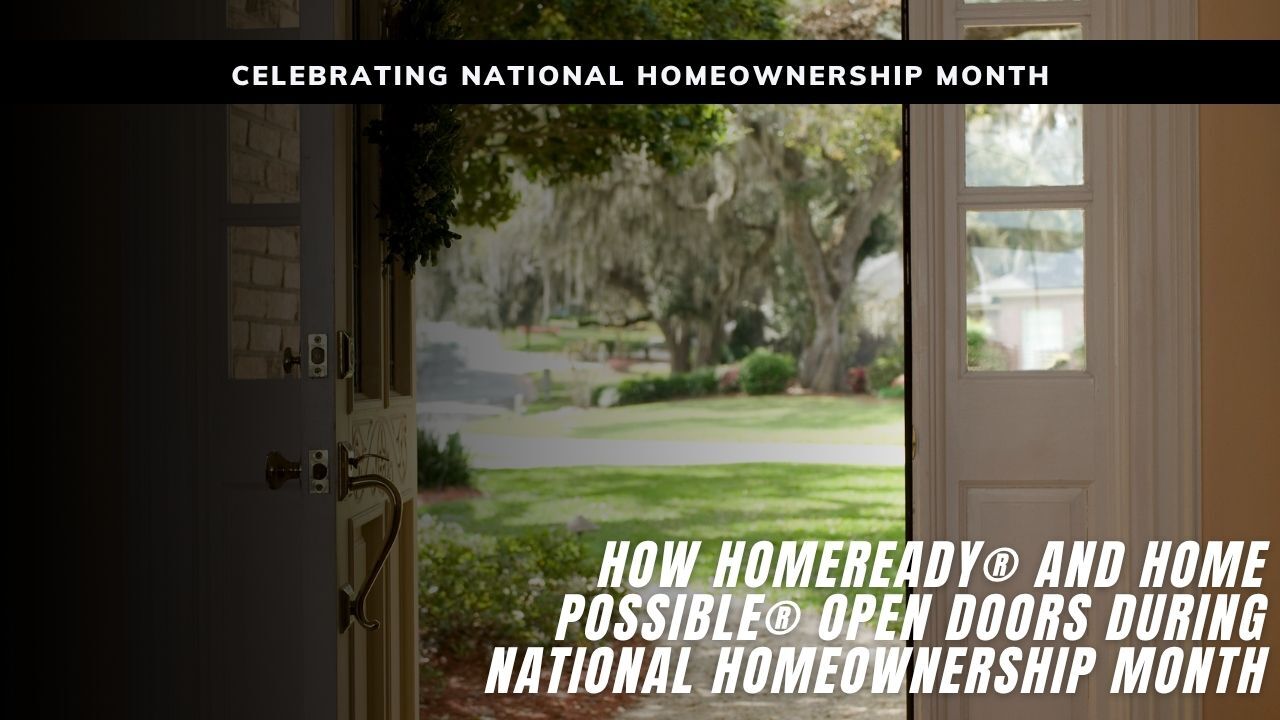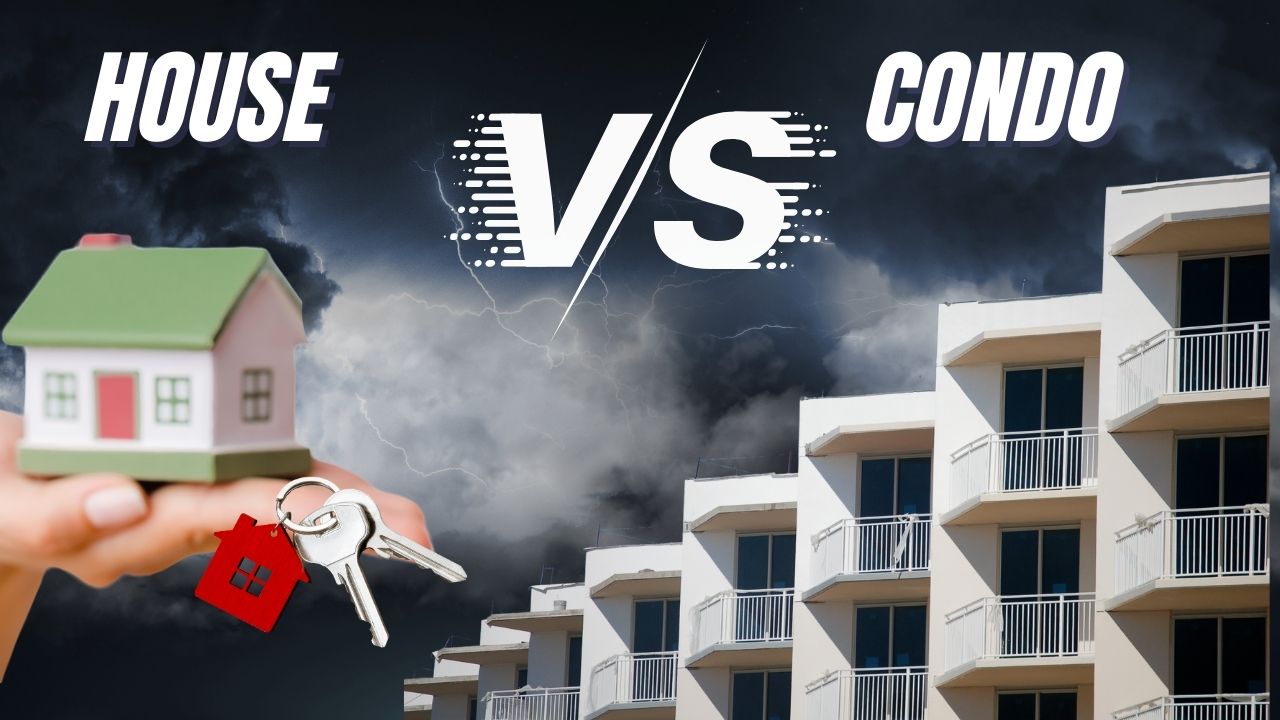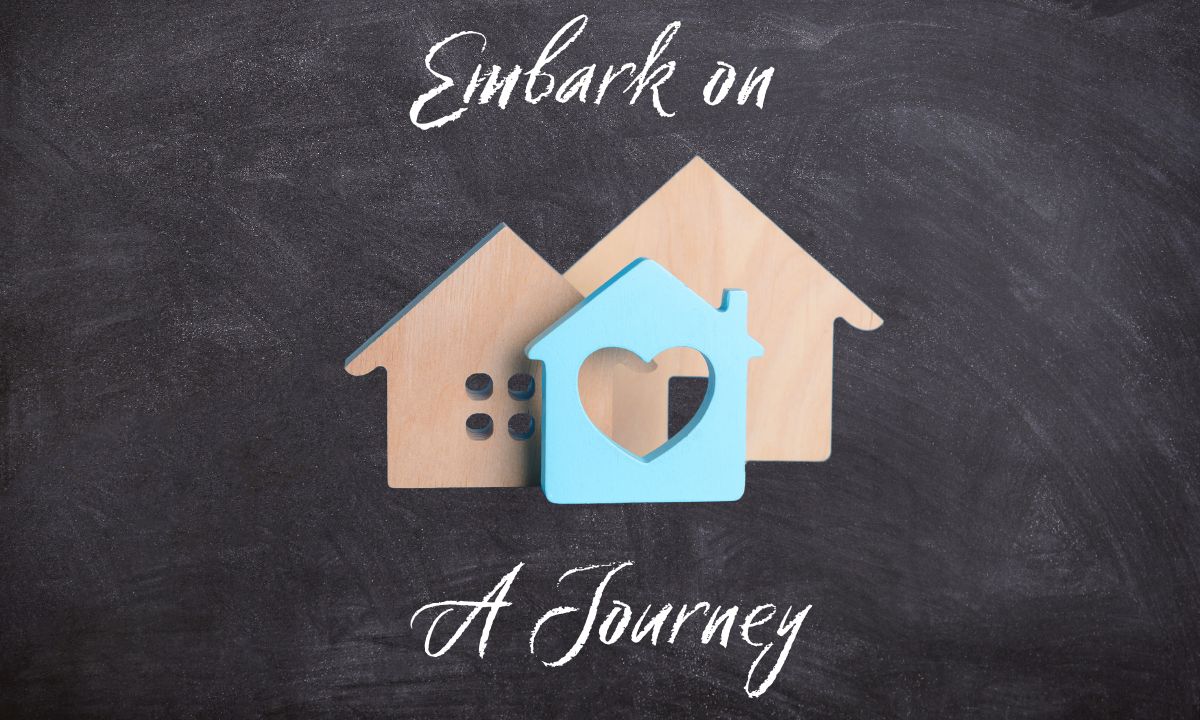 June is National Homeownership Month, a time dedicated to celebrating the American dream of homeownership and spotlighting the tools and resources that help make that dream a reality. For millions of aspiring homeowners, especially those with modest incomes, programs like Fannie Mae’s HomeReady® and Freddie Mac’s Home Possible® provide a critical pathway forward.
June is National Homeownership Month, a time dedicated to celebrating the American dream of homeownership and spotlighting the tools and resources that help make that dream a reality. For millions of aspiring homeowners, especially those with modest incomes, programs like Fannie Mae’s HomeReady® and Freddie Mac’s Home Possible® provide a critical pathway forward.
These two government-backed loan programs are specifically designed to increase access to affordable mortgage options for low-to-moderate income borrowers. In a market where rising home prices and limited inventory can feel discouraging, HomeReady® and Home Possible® are helping more people achieve the stability and wealth-building potential that comes with owning a home.
What Is HomeReady®?
Fannie Mae’s HomeReady® program was created to support creditworthy borrowers who may not meet the typical requirements for a conventional loan. With features like down payments as low as 3%, income flexibility, and homeownership education, HomeReady® is especially helpful for:
- First-time homebuyers
- Multigenerational households (co-borrowers who don’t live in the home can help qualify)
- Borrowers with limited savings
HomeReady® also allows for non-traditional income sources to be considered, which can make a big difference for gig workers or those who supplement their income with part-time jobs or family support.
What Is Home Possible®?
Freddie Mac’s Home Possible® program offers similar benefits with additional flexibility. It’s designed to help low-income borrowers and first-time homebuyers overcome some of the most common barriers to homeownership. Highlights include:
- Down payment options starting at just 3%
- Flexible credit requirements
- Reduced mortgage insurance costs
- The ability to include rental income (like from a basement apartment) to help qualify
Home Possible® also supports homebuyers in underserved areas, promoting more equitable access to homeownership across diverse communities.
Why These Programs Matter During National Homeownership Month
This month is more than a celebration, it is a call to action. As we continue to face affordability challenges and widening wealth gaps, HomeReady® and Home Possible® represent real, tangible solutions. They align perfectly with the mission of National Homeownership Month by:
- Expanding access to first-time and underrepresented buyers
- Promoting education and responsible borrowing
- Encouraging multigenerational and community-focused homeownership
These programs are proof that responsible, sustainable homeownership is still within reach, even in today’s competitive market.
Helping More Families Say “Yes” to Homeownership
The dream of owning a home shouldn’t be limited by income alone. Fannie Mae and Freddie Mac’s initiatives help bridge the gap between renters and homeowners by offering smart, flexible options designed for today’s realities. For real estate professionals, lenders, and community leaders, this month is an opportunity to raise awareness about these programs and help more families step confidently into the next chapter of their lives.
 As a first-time homebuyer, one of the biggest decisions you’ll face is whether to buy a cozy condo or invest in a larger home. Both options have their perks, and while condos may initially seem more affordable and convenient, opting for a larger home can offer significant long-term advantages that make it a better investment. Here’s why splurging on a larger home might be the right move for your future.
As a first-time homebuyer, one of the biggest decisions you’ll face is whether to buy a cozy condo or invest in a larger home. Both options have their perks, and while condos may initially seem more affordable and convenient, opting for a larger home can offer significant long-term advantages that make it a better investment. Here’s why splurging on a larger home might be the right move for your future. When you’re working with a realtor, it’s easy to feel like you need to impress us with how much you know or worry that we’re judging your choices. Let me set the record straight—there are a lot of things I truly don’t care about. My focus is on helping you achieve your real estate goals, no matter where you’re starting from.
When you’re working with a realtor, it’s easy to feel like you need to impress us with how much you know or worry that we’re judging your choices. Let me set the record straight—there are a lot of things I truly don’t care about. My focus is on helping you achieve your real estate goals, no matter where you’re starting from.  Purchasing your first home is an exciting milestone, but it can also feel overwhelming without a clear plan. With so many moving parts, from financial prep to evaluating potential homes, having a comprehensive checklist can help simplify the process. Here’s everything you need to consider to make your home-buying journey smoother and more successful:
Purchasing your first home is an exciting milestone, but it can also feel overwhelming without a clear plan. With so many moving parts, from financial prep to evaluating potential homes, having a comprehensive checklist can help simplify the process. Here’s everything you need to consider to make your home-buying journey smoother and more successful: For many younger individuals, especially those in Gen Z, the dream of owning a home can feel distant amid rising home prices, mortgage rates, and inflation. With these challenges, it’s easy to wonder if homeownership is truly within reach. While the current housing market may seem daunting, it’s important to know that it’s still possible to become a homeowner with the right strategies and support. With professional guidance, you can navigate the obstacles and achieve your goal of owning a home.
For many younger individuals, especially those in Gen Z, the dream of owning a home can feel distant amid rising home prices, mortgage rates, and inflation. With these challenges, it’s easy to wonder if homeownership is truly within reach. While the current housing market may seem daunting, it’s important to know that it’s still possible to become a homeowner with the right strategies and support. With professional guidance, you can navigate the obstacles and achieve your goal of owning a home. Purchasing your first home is an exciting milestone, but it can also feel overwhelming without a clear plan. With so many moving parts, from financial prep to evaluating potential homes, having a comprehensive checklist can help simplify the process. Here’s everything you need to consider to make your home-buying journey smoother and more successful:
Purchasing your first home is an exciting milestone, but it can also feel overwhelming without a clear plan. With so many moving parts, from financial prep to evaluating potential homes, having a comprehensive checklist can help simplify the process. Here’s everything you need to consider to make your home-buying journey smoother and more successful: